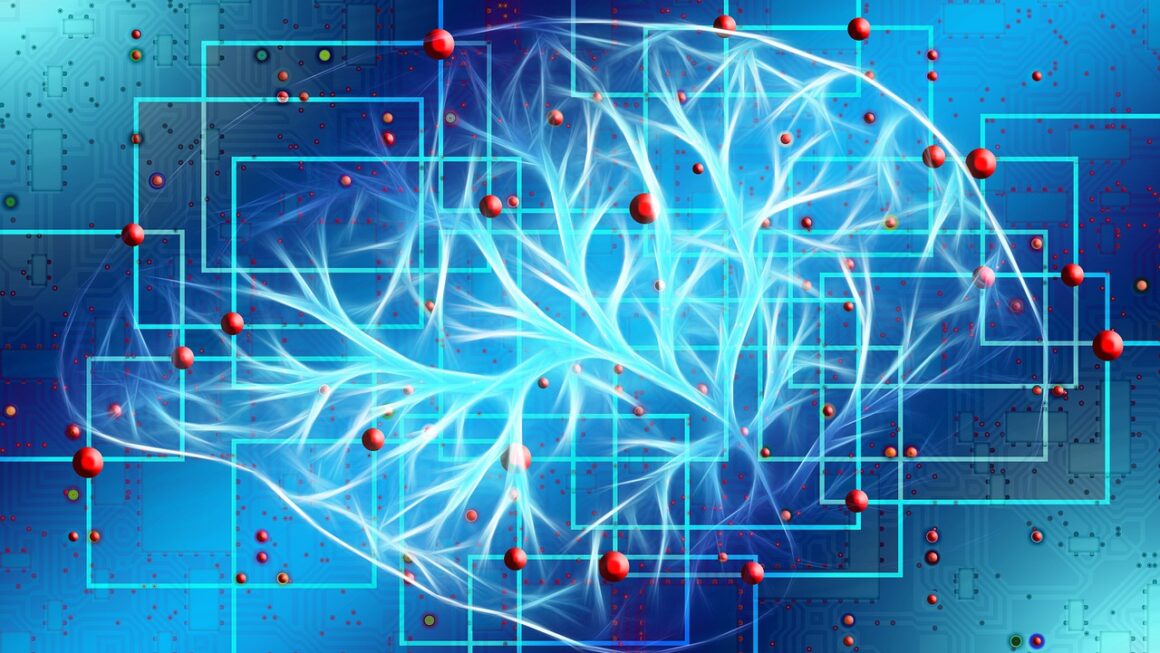Artificial intelligence (AI) is no longer a futuristic fantasy; it’s a pervasive force transforming industries and daily life. From personalized recommendations on streaming services to sophisticated diagnostic tools in healthcare, AI applications are rapidly evolving and becoming increasingly integrated into our routines. This blog post explores the diverse landscape of AI applications, highlighting their impact across various sectors and offering a glimpse into the exciting possibilities that lie ahead.
AI in Healthcare: Revolutionizing Patient Care
AI is transforming healthcare, offering new ways to diagnose diseases, personalize treatment plans, and improve patient outcomes. By analyzing vast datasets, AI algorithms can identify patterns and insights that would be impossible for humans to detect.
Diagnostics and Imaging
AI-powered diagnostic tools are enabling faster and more accurate diagnoses.
- Example: AI algorithms can analyze medical images, such as X-rays and MRIs, to detect anomalies and identify diseases like cancer with remarkable accuracy. Studies show AI can even match or exceed the performance of trained radiologists in specific diagnostic tasks.
- Benefits:
Early detection of diseases, leading to improved treatment outcomes.
Reduced workload for healthcare professionals.
Improved accuracy and consistency in diagnoses.
- Actionable Takeaway: Explore AI-powered diagnostic tools offered by companies like Google Health and IBM Watson Health.
Personalized Medicine
AI is paving the way for personalized medicine, tailoring treatments to individual patients based on their genetic makeup, lifestyle, and medical history.
- Example: AI algorithms can analyze patient data to predict their response to different medications, allowing doctors to choose the most effective treatment option.
- Benefits:
More effective treatments with fewer side effects.
Improved patient adherence to treatment plans.
Reduced healthcare costs associated with ineffective treatments.
- Actionable Takeaway: Discuss personalized medicine options with your doctor, especially if you have a complex medical condition.
AI in Business: Driving Efficiency and Innovation
AI is revolutionizing business operations, driving efficiency, innovation, and customer satisfaction. From automating routine tasks to providing valuable insights for decision-making, AI is transforming how companies operate.
Automation and Efficiency
AI-powered automation tools are streamlining business processes and freeing up employees to focus on more strategic tasks.
- Example: Robotic Process Automation (RPA) uses AI to automate repetitive tasks, such as data entry and invoice processing. This can significantly reduce costs and improve efficiency.
- Benefits:
Reduced operational costs.
Improved accuracy and consistency.
Increased employee productivity.
- Actionable Takeaway: Identify repetitive tasks in your business and explore RPA solutions to automate them.
Customer Relationship Management (CRM)
AI is enhancing CRM systems, providing businesses with a deeper understanding of their customers and enabling personalized interactions.
- Example: AI-powered chatbots can handle customer inquiries 24/7, providing instant support and resolving common issues.
- Benefits:
Improved customer satisfaction.
Increased sales and revenue.
Reduced customer service costs.
- Actionable Takeaway: Implement AI-powered chatbots on your website and social media channels to improve customer engagement.
AI in Transportation: Shaping the Future of Mobility
AI is transforming the transportation industry, leading to safer, more efficient, and more sustainable modes of transportation.
Self-Driving Cars
Self-driving cars are one of the most highly anticipated applications of AI, promising to revolutionize personal transportation.
- Example: Companies like Tesla, Waymo, and Uber are investing heavily in self-driving car technology, using AI algorithms to navigate roads, avoid obstacles, and make driving decisions.
- Benefits:
Reduced traffic accidents.
Increased mobility for elderly and disabled individuals.
Reduced traffic congestion.
- Actionable Takeaway: Stay informed about the development and deployment of self-driving car technology.
Route Optimization and Logistics
AI is optimizing transportation routes and logistics, reducing fuel consumption, and improving delivery times.
- Example: AI algorithms can analyze real-time traffic data, weather conditions, and delivery schedules to optimize routes for delivery trucks and logistics companies.
- Benefits:
Reduced fuel costs.
Faster delivery times.
Improved efficiency in supply chain management.
- Actionable Takeaway: Explore AI-powered route optimization software for your transportation or logistics business.
AI in Education: Enhancing the Learning Experience
AI is transforming education, offering personalized learning experiences, automated grading, and improved accessibility for students.
Personalized Learning
AI is enabling personalized learning experiences tailored to each student’s individual needs and learning styles.
- Example: AI-powered educational platforms can track student progress, identify areas where they are struggling, and provide customized learning materials and support.
- Benefits:
Improved student engagement and motivation.
Increased learning outcomes.
Personalized feedback and support for students.
- Actionable Takeaway: Explore AI-powered learning platforms for your children or students.
Automated Grading and Feedback
AI is automating grading and providing instant feedback to students, freeing up teachers to focus on more personalized instruction.
- Example: AI algorithms can automatically grade essays, quizzes, and other assignments, providing students with immediate feedback on their performance.
- Benefits:
Reduced workload for teachers.
Faster feedback for students.
Improved consistency in grading.
- Actionable Takeaway: Utilize AI-powered grading tools in your classroom to streamline the grading process.
AI in Finance: Automating Processes and Mitigating Risk
The finance industry is rapidly adopting AI to automate processes, detect fraud, and manage risk more effectively. AI is proving to be an invaluable asset, increasing efficiency and enhancing security.
Fraud Detection
AI algorithms are highly effective at detecting fraudulent transactions by identifying unusual patterns and anomalies in financial data.
- Example: Banks and credit card companies use AI to analyze transaction data in real-time, flagging suspicious activity and preventing fraudulent purchases.
- Benefits:
Reduced financial losses from fraud.
Improved security for customers.
Enhanced regulatory compliance.
- Actionable Takeaway: Review your financial institution’s fraud detection measures and consider using AI-powered fraud detection tools for your own business.
Algorithmic Trading
AI-powered algorithmic trading systems can analyze market data and execute trades automatically, often at speeds and frequencies that humans cannot match.
- Example: Hedge funds and investment firms use AI algorithms to identify profitable trading opportunities and execute trades with minimal human intervention.
- Benefits:
Increased trading efficiency.
Reduced transaction costs.
Improved investment returns.
- Actionable Takeaway: Research AI-powered algorithmic trading platforms if you are interested in automated investment strategies.
Conclusion
AI applications are transforming virtually every aspect of our lives and industries. From healthcare and business to transportation, education, and finance, AI is driving innovation, improving efficiency, and creating new opportunities. As AI technology continues to evolve, it’s crucial to stay informed about its potential and its impact on society. By embracing AI and integrating it responsibly into our workflows, we can unlock its transformative power and create a more efficient, productive, and fulfilling future. The possibilities are vast, and the journey has only just begun.




